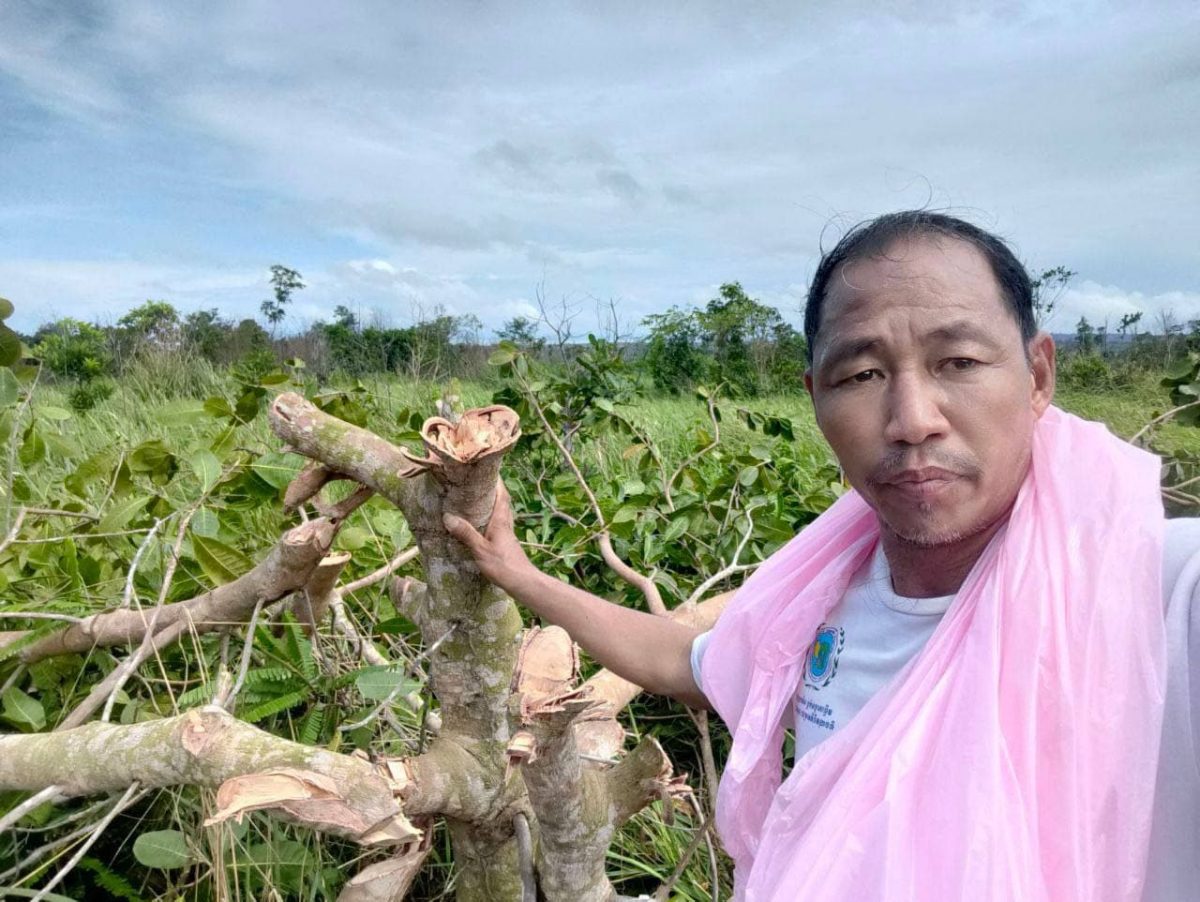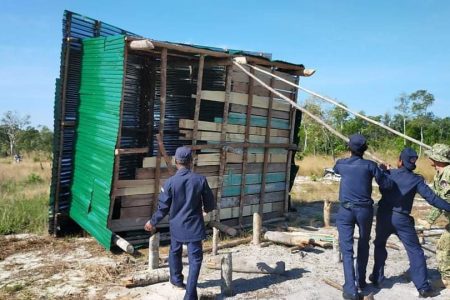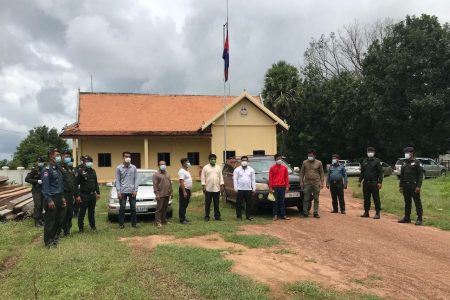An online news publisher was convicted Thursday of felony incitement and sentenced to one year in prison for broadcasting what officials say is disinformation related to a land dispute in Botum Sakor National Park.
The Koh Kong provincial court passed swift judgment against digital journalist Yuon Chhiv, who was arrested Wednesday following a complaint from provincial deputy Governor Sok Sothy. Chhiv had posted comments on Facebook through his media outlet, Koh Kong Hot News, regarding Sothy and the demolition by authorities earlier this month of crops and wooden houses on disputed land.
The court’s deputy prosecutor and spokesman Vey Phearom said Chhiv, 51, is now in prison and has also been fined 2 million riel, or about $500.
On September 9 and 19, Chhiv wrote on his publication’s Facebook page that deputy Governor Sothy had led a police force of roughly 100 officers to destroy villagers’ crops in the Thmar Sar commune of Botum Sakor district. Chhiv also wrote that Sothy and other authorities were refusing to adhere to Sub-Decree 30, a measure signed by Prime Minister Hun Sen in March that excluded land from the national park for private use.
Before his arrest, Chhiv told CamboJA he had not spread any disinformation about the status of the land, adding that the site of the demolitions had been cultivated by villagers for about 10 years. Officials deny the land in question is included under the sub-decree and have accused Chhiv and the others of encroaching on protected parkland.
The plaintiff Sothy, who had accused Chhiv of damaging his reputation, could not be reached for comment. Nor could National Defense Minister Tea Banh, at whose request the lawsuit against Chhiv was reportedly filed.
Sub-Decree 30 has been explained by the government as a measure to redistribute almost 127,000 hectares of land across eight conservation zones, including in Botum Sakor National Park, to villagers and other locals who had inhabited it before the territory was placed under protected status. However, outside observers say powerful figures connected to the government are the main benefactors of the privatization move, not local smallholders.
Mom Malika, Koh Kong provincial information director, said he didn’t know much about the case against Chhiv but that matters connected to press issues would mean the journalist had to come forward and apologize for his mistakes in coverage.
“I do not know the previous history, only that it is related to the media. Firstly, spreading false information without a clear basis, according to the plaintiff, and secondly, [Chhiv] spread dishonor,” Malika said.
Nop Vy, executive director of the Cambodian Journalists Alliance Association, said the court brought Chhiv’s case to trial and sentencing too quickly, giving the defendant no opportunity to seek a lawyer or obtain a well-informed legal education.
“As far as we can see, he has just been charged and sentenced to one year in prison,” Vy said. “This seems like a serious threat to other journalists.”
He added that the courts should apply the Press Law and stop use of the penal code in cases of journalistic practice in order to maintain freedom of the press and access to factual information.
Ith Sothoeuth, acting executive director of the Cambodian Center for Independent Media, said he didn’t have clear information about Chhiv’s trial but said the Press Law should prevent prosecutions based on a journalist’s reporting.
Sothoeuth added that, in normal situations, all parties involved in an informational dispute should be corrected rather than face criminal prosecution.










